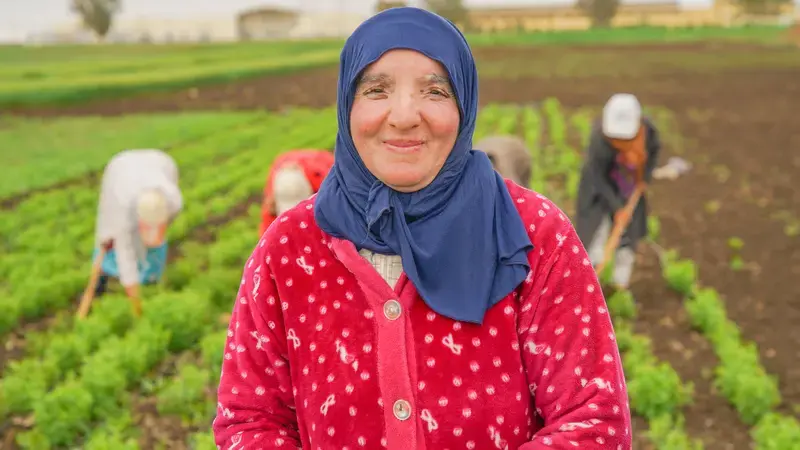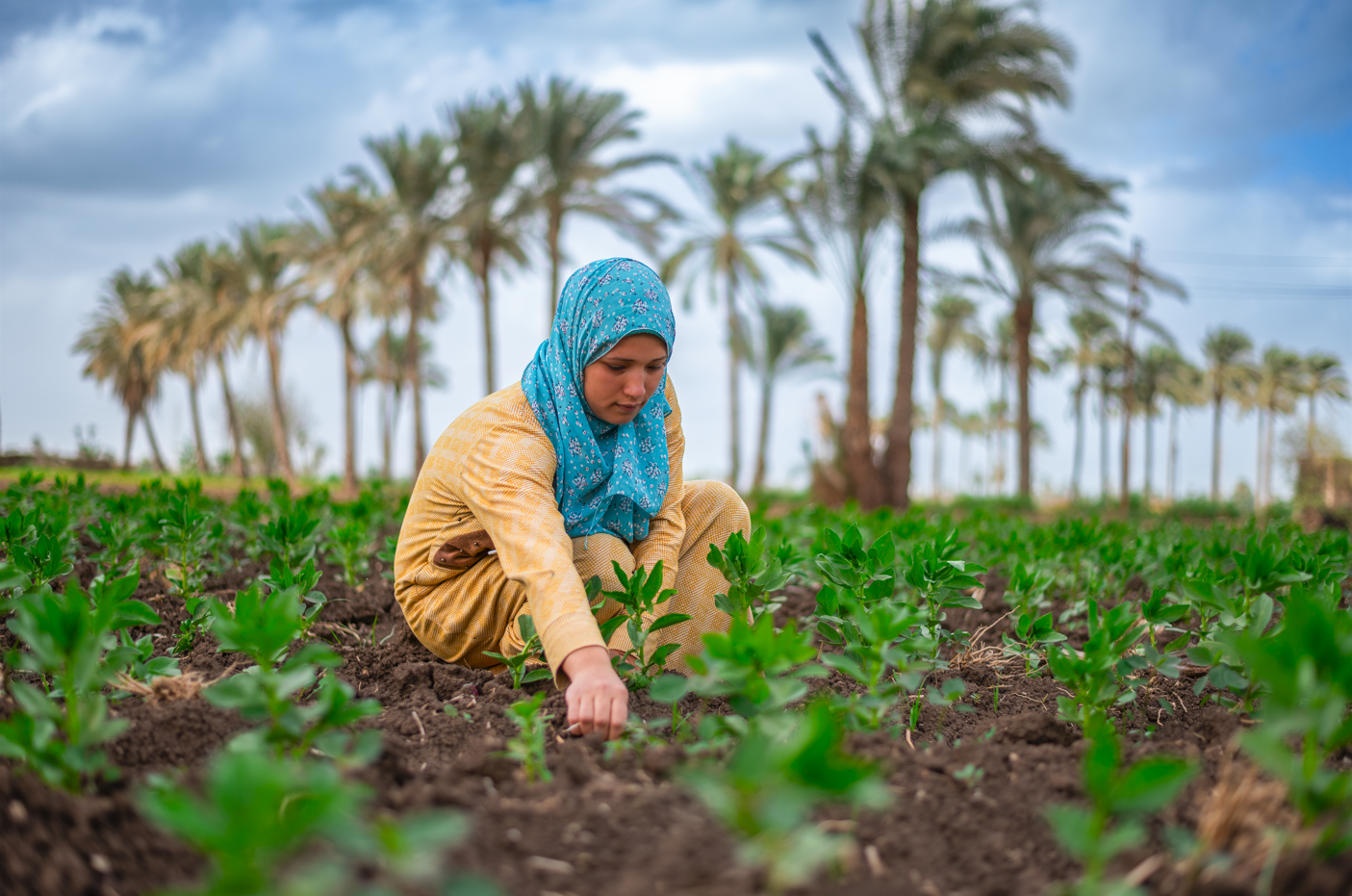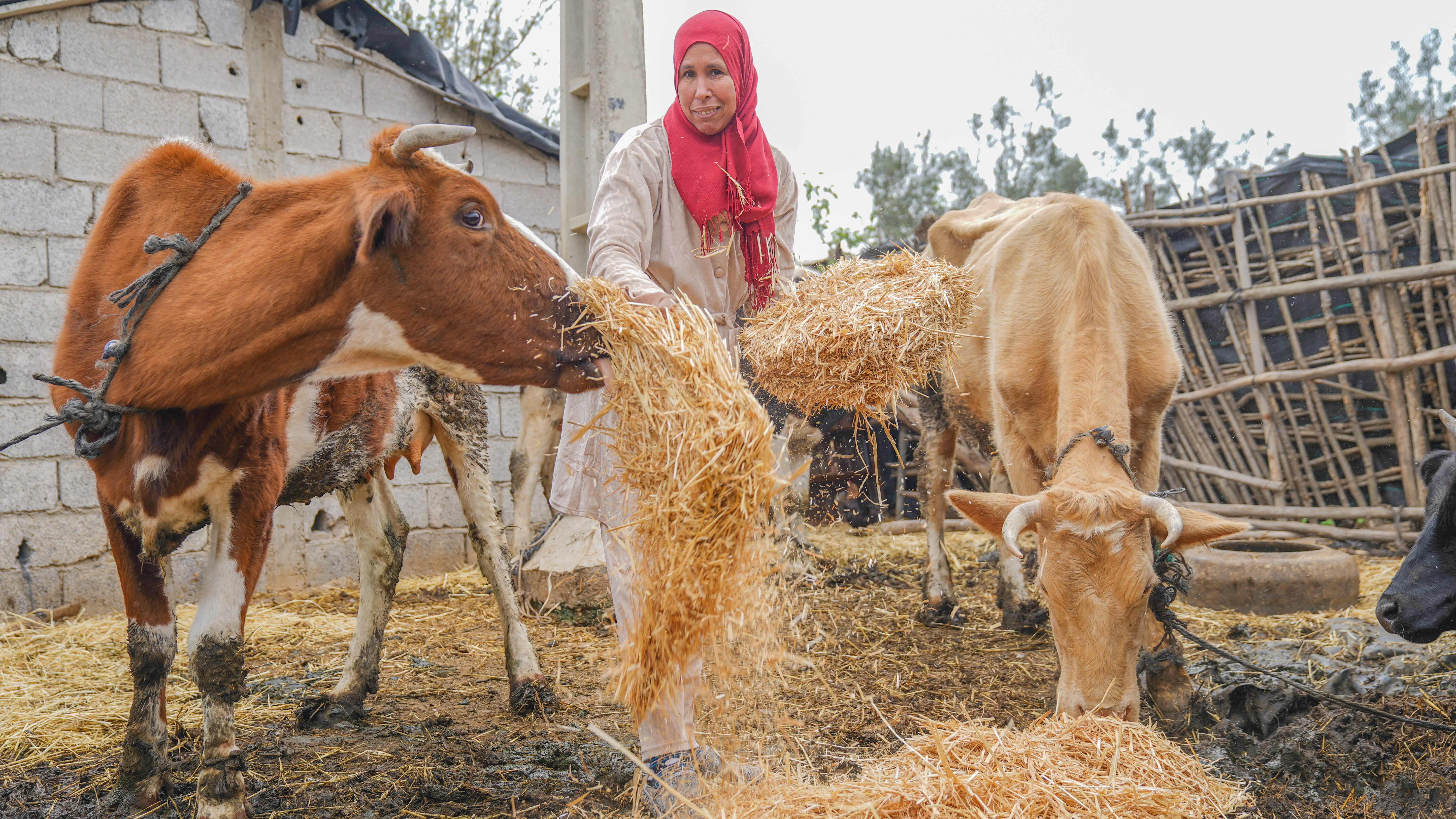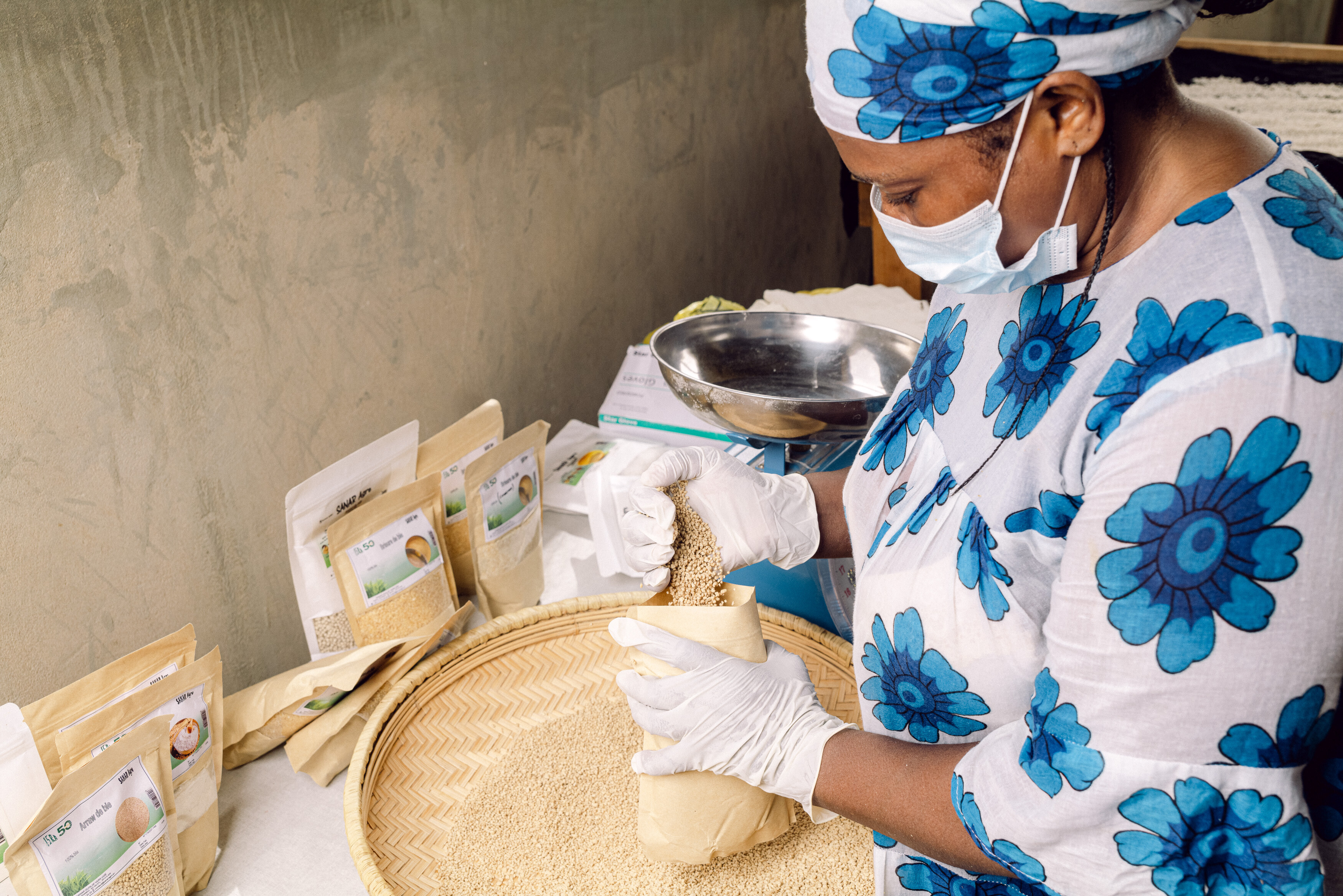Closing Gender Gaps for Resilient Agrifood Systems

As the world marks the 2025 International day of Rural Women and approaches the International Year of the Woman Farmer, we highlight a new study co-authored by ICARDA’s Senior Gender Scientist Dr. Dina Najjar and Dr. Daniel Amok at the Trent School of the Environment, Trent University, and funded by CGIAR, underscores the urgent need to place women at the heart of agrifood systems governance.
Agrifood systems will not be able to withstand climate change as long as women’s needs and knowledge are ignored, concludes a study that underlines the extent to which women are marginalized in decision-making structures at household, community and institutional levels despite their critical roles as producers, natural resource managers, and custodians of local knowledge.
“Empowering rural women in agrifood governance is both a matter of justice and a practical necessity for achieving food security, climate resilience, and sustainable development,” emphasizes Dr. Dina Najjar.
This study comes at just the right time, as today the world marks the 2025 International Day of Rural Women with the theme “Rural women sustaining nature for our collective future: Building climate resilience, conserving biodiversity, and caring for land towards gender equality and empowerment of women and girls”.
Women are key agents of climate solutions

Climate change is not just an environmental disaster; it is also a social crisis rooted in gender imbalance. When rising temperatures, floods, or droughts strike, women—who account for more than 45% of the agricultural workforce—are more affected. Because cultural norms and practices and societal structures often limit their influence and access to resources, women face a higher reliance on informal or low-paying work, gender-based violence, challenges in negotiating land use, and other issues which make them more vulnerable to the social effects of climate change.
Yet, “rural women are not passive victims of climate change,” notes Dr. Najjar. “They are innovators and custodians of biodiversity, leading adaptation strategies such as sustainable farming, soil management, and seed conservation… provided they are given the means to do so.”
In Morocco, ICARDA’s support to women’s cooperatives through training in marketing, leadership, and engagement with service providers has quickly opened new markets and increased cooperative members' incomes. Similar support in Ethiopia showed how women breeders swiftly embraced new practices and innovations, leading to higher incomes and better livelihoods for the households.
Removing barriers

The Middle East and North Africa (MENA) region is considered to be among the most unequal regions in the world, with women owning only 5% of the land, receiving less than 10% of available credit, and accessing barely 5% of the extension services. These barriers hold back women who, for instance, cannot utilize crops that are critical for dryland agriculture and food security, therefore compromising the adaptation of agrifood systems to a fast-changing climate.
In their paper, which synthesizes evidence from 47 studies in the Global South, Dr. Najjar and Dr. Amok identified two forms of barriers that women face in the governance of agrifood systems.
“The first set of barriers relates to limited access to agricultural inputs and practices for adapting farming practices to a changing climate. The second set of obstacles pertains to women’s challenges in shaping local approaches to climate-relevant AFS governance,” underlines Dr. Amok.
With less access to climate information and agricultural resources, limited education, financial literacy, and inclusion, and deeply entrenched public financial management practices that fail to address inequalities, many women are caught in a low-productivity trap with limited ability to adopt climate adaptation strategies.
However, the study shows that when these barriers are removed, women not only participate further in agrifood systems governance, they also experience tangible advantages that improve their well-being and increase their incomes, knowledge, and nutritional outcomes.
Shaping the future of agriculture

“Investing in women’s leadership can yield far-reaching dividends, not only for women themselves but also for the institutions they represent, their communities, and society at large. The evidence we compiled has shown time and again that having active women leaders can result in increased funding for the services women prioritize, more robust policies related to gender-based violence, and even eliminate the gender gap in yields,” stresses Dr. Najjar.
Through its research and projects in the fields, ICARDA remains committed to enhancing women’s access to land, water, seeds, credit, knowledge, and innovation, and empowering them through capacity development so that they can assume their role as leaders and agents of change, and engage in more lucrative economic activities through agricultural diversification, intensification, and value addition.
From the fields to the corridors of power, rural women should have their say in the governance of agrifood systems. Their voice should be heard when legislative and institutional reforms are drafted to secure women's land rights and gender-responsive budgeting. In addition, capacity-building programs should be designed and implemented for increased participation of women, and inclusive extension services must directly enhance women's skills, agency, and access to resources. Meanwhile, participatory research, gender-sensitive innovations, and the systematic collection of gender-disaggregated data would ensure that interventions align with women's needs and priorities.
As the study emphasizes, this approach would help policymakers and practitioners design interventions that not only reach women but also empower them, transforming the gender dynamics that define agri-food systems in dry regions. After all, rural women don’t just sustain the land; they cultivate the very future of agriculture.
This work was supported by CGIAR Initiative From Fragility to Resilience in the CWANA Region and HER+: Harnessing Gender and Social Equality for Resilience in Agrifood Systems, as well as all funding organizations that globally support CGIAR research through contributions to the CGIAR Trust Fund. It has since been taken up by the CGIAR Science Program Scaling for Impact and the Gender Equality and Inclusion Accelerator.
